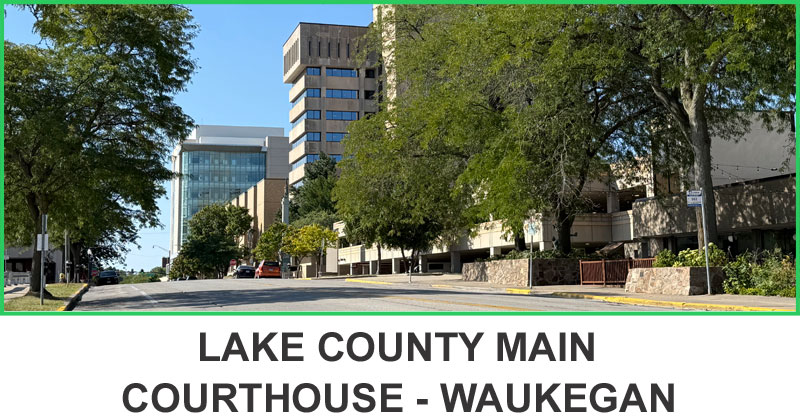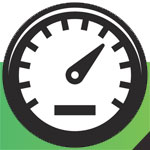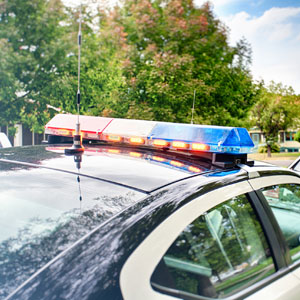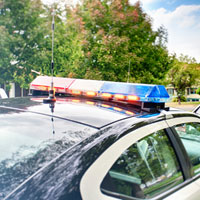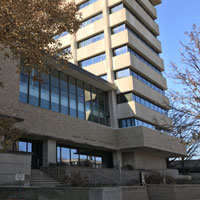Aggravated Speeding & Petty Offense Speeding Ticket Lawyer Lake County Illinois
Office Located in Mundelein

Matt Hoffman
Former Lake County Assistant State's Attorney
25+ Years in Lake County
Former Felony Prosecutor
Aggravated Speeding Tickets


Work with a Former Lake County Speeding Ticket Prosecutor
Work with a Former Lake County Speeding Ticket Prosecutor
The HoffmanLaw Office defends drivers against tickets for speeding and aggravated speeding at the Lake County, Illinois traffic courts located in Mundelein, Park City, Round Lake Beach and Waukegan. Call The HoffmanLaw Office at (847) 587-5000 for a free consultation.
Aggravated Speeding vs Petty Offense Speeding in Lake County
There are two distinct types of Lake County speeding tickets: petty offense speeding tickets and misdemeanor, or "aggravated," speeding tickets. Aggravated speeding tickets are the more serious of the two.
A petty offense speeding ticket alleges speeding between 1 and 25 miles per hour over the speed limit. An aggravated speeding ticket alleges speeding 26 or more miles per hour over the speed limit.
All Lake County speeding tickets are charged as moving violations and have the potential to make their ways to Illinois driving records.
More than 25 Years in Lake County Traffic Court
My name is Matt Hoffman. I defend Lake County drivers against all levels of speeding tickets in the Lake County traffic courts.
I'm a former Lake County traffic court prosecutor and former Lake County Assistant State's Attorney. I've been working on Lake County speeding tickets since 1999.
For a free, zero-obligation consultation on your case, call me or fill out the form on this website.
TOPICS ON THIS PAGE
Aggravated Speeding:
Aggravated Speeding Penalties Jail Time Factors to Consider Other Differences Limits on Supervision Right to Trial Courtroom Environment Post Arraignment Pursuing the Best Outcome
Petty Offense Speeding:
Petty Speeding Defined Conviction-Based Suspensions Court Supervision More on Supervision Limits Illinois Driver's Abstract
Other Considerations:
Questions & Answers History of Illinois Speeding Law Case Evaluation / Contact The HoffmanLaw Office
Lake County Lawyer Defending Drivers Against Lake County Illinois Aggravated Speeding Tickets
Lake County Lawyer Defending Drivers Against Lake County Illinois Aggravated Speeding Tickets
Consideration in detail first is given here to the Lake County aggravated speeding ticket. Here's why:
• Because Lake County aggravated speeding tickets are punishable by jail time and always require court appearances.
• Because Lake County judges and prosecutors view aggravated speeding tickets as charging more serious offenses than petty offense speeding tickets.
• And because Lake County aggravated speeding tickets can inflict greater damage to driving records than petty offense speeding tickets.
Lake County petty offense speeding tickets are discussed in more detail below.
Misdemeanor Potential Penalties for Lake County Illinois Aggravated Speeding Tickets
Misdemeanor Potential Penalties for Lake County Illinois Aggravated Speeding Tickets
Let's start with the basics. Lake County aggravated speeding tickets allege an act of speeding at least 26 miles per hour over the speed limit.
There are two different types, or levels, of Illinois aggravated speeding tickets.
There are class B and class A misdemeanor aggravated speeding tickets.
A class B aggravated speeding ticket alleges speeding between 26 and 34 miles per hour over the speed limit.1 Speeding tickets charged in this range are punishable by up to 180 days in jail and up to a $1500 fine plus statutory assessments, also known as "court costs."2

An Illinois class A misdemeanor aggravated speeding ticket is an even more serious allegation.
A class A aggravated speeding ticket alleges speeding 35 miles per hour or more over the speed limit.3 This type of speeding ticket is punishable by up to 364 days in jail and up to a $2500 fine, plus statutory assessments.4

A conviction for either class B or class A misdemeanor aggravated speeding is a conviction for a criminal offense, a "misdemeanor" being "any offense for which a sentence to a term of imprisonment in other than a penitentiary for less than one year may be imposed."5
Do Drivers Go to Jail for Lake County Illinois Aggravated Speeding Tickets?
Do Drivers Go to Jail for Lake County Illinois Aggravated Speeding Tickets?
The basic difference between a Lake County petty offense versus aggravated speeding ticket is that, for the former, a driver cannot be sentenced to jail and may be fined a maximum of $1000, while for the latter, a driver can be sentenced to jail and punished with significantly higher fines.
But do people actually go to jail in Illinois on speeding tickets? Some do. Most don't.
Factors to Be Considered in Seeking the Best Possible Outcome of a Lake County Aggravated Speeding Ticket
Factors to Be Considered in Seeking the Best Possible Outcome of a Lake County Aggravated Speeding Ticket
The fact that, statistically, most Lake County drivers charged with aggravated speeding are not sent to jail for the offense does not change the fundamental nature of the allegation.
Additionally, that fact doesn't alter the reality that an aggravated speeding ticket alleges the commission of a criminal offense.
Nor does it prevent the judge presiding over the case in the courtroom from imposing any other penalties authorized under Illinois law.
Based on my more than twenty-five years of experience with Lake County traffic charges, I defer to the very prudent advice of the Illinois State Bar Association on this issue, in a very excellent article on the ins-and-outs of Illinois traffic court: "It is prudent to hire an attorney for offenses punishable by jail time if possible."
That is so elegantly stated. Kudos to the author(s).
For many drivers, being charged with aggravated speeding will be the only time in their lives they are charged with a crime.
The likelihood of doing jail time is by far not the only part of the analysis when setting about crafting a strategy for how best to resolve an aggravated speeding ticket.
Seeking to Avoid a Conviction
When jail time is avoided, other considerations may include whether the ticket will result in a conviction or court supervision, or if the charge might be dismissed.
If the ticket is not dismissed, then consideration should be given to how the resolution of the case will appear on a driving record, and specifically to how the matter could impact the driver's record for purposes of insurance.
Driving records also are relevant to the resolution of potential future traffic tickets. As a former Lake County traffic court prosecutor, I know how prosecutors and judges consider driving records in their approaches to potential future charges.
I cannot credibly think of a situation where it is better to have a poor driving record than a good or excellent driving record when it comes time to resolve any new particular ticket in traffic court.
For this reason alone, seeking the best possible outcome of a misdemeanor speeding ticket becomes of high importance.
Seeking a Reduced Charge
Additionally, in cases where a dismissal is not achieved, it may nonetheless be possible to accomplish a reduction of the severity of the offense alleged.
An example of this scenario occurs when the defense and prosecution reach an agreed resolution of the case, whereby the prosecution, in its discretion and authority, voluntarily reduces the ticket from a misdemeanor to a petty offense pursuant to a negotiation reached between the parties.
The total amount of fines and court costs, and whether traffic safety school will be required, also are significant factors in resolving an aggravated speeding ticket.
There are even scenarios where a conviction for aggravated speeding can lead to the suspension of an Illinois driver's license. It is in these circumstances most especially, where possible, that convictions are best avoided.
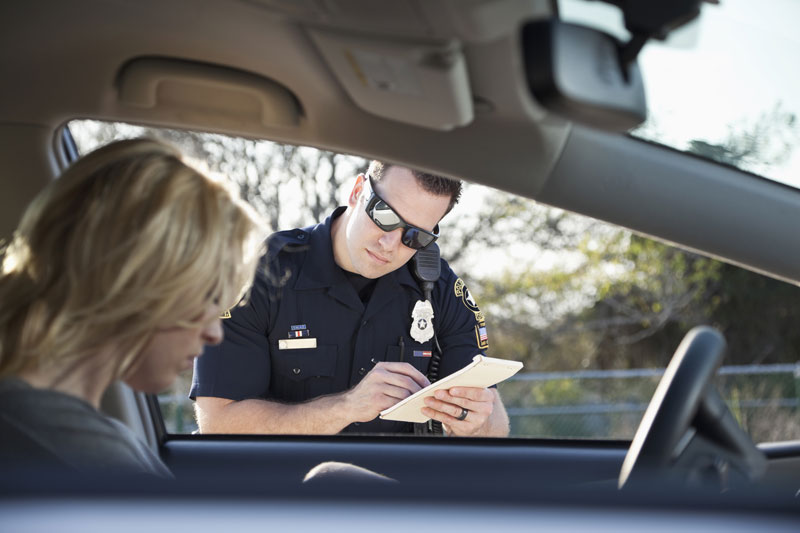
Additional Differences Between Lake County Aggravated and Petty Offense Speeding Tickets
Additional Differences Between Lake County Aggravated and Petty Offense Speeding Tickets
Not only does an aggravated speeding ticket carry the possibility of jail time, but it differs from a petty offense speeding ticket in a number of other important ways.
"Must Appear" Cases
First, unlike petty offense speeding tickets, which might allow a driver to resolve the ticket without ever even going to court, a Lake County aggravated speeding ticket requires a court appearance.
Court diversion procedures that apply to some petty offense speeding tickets, by which a driver may resolve the ticket for court supervision by mail and by paying a fine and completing traffic school, do not apply to Lake County aggravated speeding tickets.

When Supervision Not Allowed
Second, while in many circumstances a driver might be eligible to receive court supervision for a speeding ticket charged as a petty offense, in some aggravated speeding cases court supervision is not even allowed.
Court supervision is a disposition of the ticket that does not result in a conviction for the offense and which ultimately leads to a dismissal of the charge by operation of law upon successful fulfillment of the supervision terms.6
Instances Where Court Supervision is Not Allowed for Aggravated Speeding
Instances Where Court Supervision is Not Allowed for Aggravated Speeding
If previously a driver was convicted of or placed on court supervision for aggravated speeding, then that driver cannot receive court supervision for a new misdemeanor speeding charge.7
Additionally, if an aggravated speeding offense occurred in an "urban district," court supervision is not permitted.8
Also, if a driver already received court supervision twice for moving violations in the twelve months preceding the issuance of a new misdemeanor speeding charge, that driver cannot receive court supervision for the new charge.9
Moreover, even if a driver is eligible to receive court supervision, that does not mean that driver has an automatic right to be placed on supervision, upon request, in their case.10
In determining whether to agree to court supervision as an outcome, both judges and prosecutors may consider a driver's driving record and the overall facts of the case.
If a driver is found guilty in a situation where court supervision is not allowed, the court will enter a conviction for the offense. That conviction will be recorded on an Illinois driving record. In some scenarios, such a conviction could lead to the suspension of a driver's license.
The Presumption of Innocence, Right to Trial and Burden of Proof
The Presumption of Innocence, Right to Trial and Burden of Proof
A driver charged with aggravated speeding is presumed innocent of the offense and has the right to a trial. The burden of proof is on the prosecution and is beyond a reasonable doubt.
A driver has the right to confront and cross-examine any witnesses who testify for the prosecution. A driver may call her or his own witnesses to testify, testify her or himself, or choose not to testify at all during trial.
The burden of proof never shifts to the driver. That is, there is never a point during a trial where the driver now becomes obligated to prove her or his innocence. The driver is presumed innocent unless and until found guilty after the conclusion of the presentation of testimony and evidence.
If a guilty verdict occurs, that then leads to a sentencing hearing, where the judge presiding over the trial determines the penalties imposed. Conversely, if the trial leads to a not-guilty verdict, then the driver is acquitted of the charge and the charge is dismissed outright.
The Courtroom Environment
The Courtroom Environment
Often the questions are asked, "Isn't this just a speeding ticket? Why would I hire a lawyer for my case?"
Ultimately, the decision is yours as to whether or not you obtain legal representation on your Lake County aggravated speeding ticket.
Given the foregoing discussion, however, it may be summarized generally that a Lake County aggravated speeding ticket involves:
(1) a misdemeanor prosecution against you,
(2) a setting where jail time could result,
(3) a legal proceeding where a conviction for a criminal offense could ensue,
(4) a forum where a high fine could be imposed,
(5) a process that could lead, in certain circumstances, to the suspension of an Illinois driver's license or driving privileges,
(6) a scenario where the outcome of the case could negatively impact your vehicle insurance rates,
(7) a potential trial where the prosecution's star witness almost invariably will be a trained police officer, often with significant prior experience testifying in court, and
(8) an adversarial environment where the prosecutor is an attorney with often years of trial experience.
These are some of the features of prosecutions for aggravated speeding tickets. As an attorney, I've dealt effectively, meaningfully and successfully with these features of aggravated speeding tickets in the Lake County courthouses for more than twenty-five years.
If Your Lake County Misdemeanor Speeding Ticket Now is Continued for "Status of Attorney" Out at Branch Court
If Your Lake County Misdemeanor Speeding Ticket Now is Continued for "Status of Attorney" Out at Branch Court
You may have appeared already at the Mundelein, Park City or Round Lake Beach Branch courthouse on your Lake County aggravated speeding ticket and heard the maximum possible penalties for your charge from the judge.
Your case may have been continued to allow you time to discuss your ticket with a lawyer.
The initial court date typed or written on your ticket is known as the "arraignment date."
In Lake County, Illinois traffic court, the arraignment date is not a trial date, so there is no requirement that the police officer who issued your ticket be present and available to testify at that time.
At the arraignment, the court has not heard the particular facts and circumstances of your case. Nor has the court determined the specific penalty it would impose if you are found guilty of the charge.
At the arraignment, the court is aware of the allegation that has been made against you: the allegation of a class B or class A misdemeanor offense.
After the arraignment, the court will be authorized to impose any penalties permitted by law, including a conviction, if you are found guilty of your aggravated speeding ticket later at trial.
Over the years, I've worked with many drivers who were unaware originally of the potential penalties for their aggravated speeding tickets until they were made aware, for the very first time, of those potential penalties by the judge at the arraignment.
If you've had your first court date in one of the Lake County Branch courthouses on your aggravated speeding ticket, and your case has been continued to allow you time to consult with a lawyer, I'm available to discuss your case.
The Effort to Forge the Best-Possible Outcome
The Effort to Forge the Best-Possible Outcome
A number of different outcomes are possible for an aggravated speeding ticket.
These outcomes include a conviction for the offense as charged, court supervision for the offense as charged, a conviction for a reduced charge, court supervision on a reduced charge, and an outright dismissal of the ticket.
In defending you against an aggravated speeding ticket at the Mundelein, Park City, or Round Lake Beach Branch courthouse, I will work to achieve the best possible outcome of your case.
In defending my client, I rely on my experience and trial court instincts as a local attorney who's worked in the Lake County court system since 1999.
My former experience as a Lake County traffic court prosecutor in the Lake County State's Attorney's Office helps me anticipate arguments a prosecutor might make and prepare counterarguments.
I've defended hundreds of clients against speeding tickets in Lake County traffic court and have achieved reduced charges, avoided convictions, and accomplished dismissals in many cases.
I am a problem solver. I view an aggravated speeding ticket as presenting a problem. Now, how best to solve this problem?
Statutory Sources:
1. 625 ILCS 5/11-601.5(a). 2. 730 ILCS 5/5-4.5-60. 3. 625 ILCS 5/11-601.5(b). 4. 730 ILCS 5/5-4.5-55. 5. 720 ILCS 5/2-11. 6. 730 ILCS 5/5-1-21, 730 ILCS 5/5-6-3.1. 7. 730 ILCS 5/5-6-1(p). 8. 730 ILCS 5/5-6-1(q). 9. 730 ILCS 5/5-6-1(k). 10. 730 ILCS 5/5-6-1(c).
Aggravated Speeding Ticket FACTS
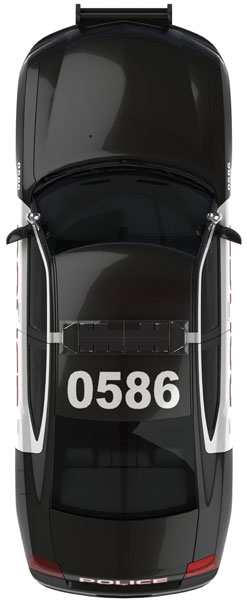
Class B Misdemeanor
Speeding between 26 and 34 miles per hour over the speed limit. Up to a $1500 fine and 180 days in jail.
Class A Misdemeanor
Speeding 35 or more miles per hour over the speed limit. Up to a $2500 fine and 364 days in jail.
Supervision Limitation
No court supervision if previously you had supervision for or were convicted of misdemeanor speeding. 730 ILCS 5/5-6-1(p).
Court Appearance Required
Your Lake County aggravated speeding ticket requires that you appear in front of a judge in traffic court.
Supervision Possible
Depending on your driving record and the facts of your case, you may be eligible for court supervision on your aggravated speeding ticket.
Reduced Charge
In certain circumstances, it may be possible to convince the prosecution to lower your misdemeanor to a petty offense.
When I defend you in a misdemeanor aggravated speeding case, I'm dedicated to seeking the best possible outcome of your charges and to keeping your driving record as clean as possible.
~Attorney Matt Hoffman, The HoffmanLaw Office
Your Defense Starts Here: How The HoffmanLaw Office Works to Defend Your Lake County Speeding Ticket
Your Defense Starts Here: How The HoffmanLaw Office Works to Defend Your Lake County Speeding Ticket
A Lake County Illinois Petty Offense Speeding Ticket Alleges Speeding 1-25 Miles Per Hour Over the Speed Limit
A Lake County Illinois Petty Offense Speeding Ticket Alleges Speeding 1-25 Miles Per Hour Over the Speed Limit
Twenty-six. Twenty-six miles per hour over the speed limit is the speed at which Illinois misdemeanor, aggravated speeding tickets begin.
But what about all the other speeding tickets Lake County police issue to drivers that claim the driver was going less than that speed? Those lower-level Illinois speeding tickets are called "petty offenses."
Petty offense speeding tickets are issued under Section 625 ILCS 5/11-601(b) of the Illinois Vehicle Code. A petty offense speeding ticket alleges speeding between 1 and 25 miles per hour over the speed limit. A petty offense speeding ticket is punishable by a fine of up to $1,000 but does not carry potential jail time.
Specifically, Illinois law defines a petty offense as " . . . any offense punishable by a fine of up to $1,000 and for which a sentence of imprisonment is not an authorized disposition."1
In comparison to aggravated speeding tickets, or other types of speeding tickets- like speeding in a school or construction zone- sometimes petty offense speeding tickets are referred to as "regular" speeding tickets.
Even though a petty offense speeding ticket is not punishable by jail time, just like an aggravated speeding ticket, a petty offense speeding ticket can result in a record of conviction, damage a driving record, trigger higher vehicle insurance rates and, in some cases, lead to the suspension of an Illinois driver's license.
When Multiple Speeding Ticket Convictions or Other Convictions Cause the Suspension of an Illinois Driver's License
When Multiple Speeding Ticket Convictions or Other Convictions Cause the Suspension of an Illinois Driver's License
Convictions for multiple speeding tickets, or convictions for speeding and other moving violations, can lead to the suspension of an Illinois driver's license.
If a driver pleads guilty to or is found guilty of a Lake County, Illinois speeding ticket, the Office of the Clerk of the Circuit Court of Lake County will notify the Office of the Illinois Secretary of State of that result.
That latter authority then will examine the driver's Illinois driving record and determine whether that conviction warrants suspension action.
As a general rule, for a driver who is age 21 or over, convictions for three moving violations committed within a single twelve-month period will lead to the suspension of that driver's license.2
For a driver under 21 years of age, this type of multiple-conviction-based moving violation suspension will be imposed much quicker.
For a driver under 21, Illinois license suspension action will occur if that driver is convicted of only 2 moving violations committed within a single 24 month period.3
Court Supervision on a Lake County Speeding Ticket
Court Supervision on a Lake County Speeding Ticket
Court supervision on an Illinois speeding ticket is a type of disposition where a driver is found guilty of the charge, ordered to fulfill certain conditions, but is not actually convicted of the offense. A driver's successful completion of the court supervision period leads to a dismissal of the charge.4
As was discussed just above, a common statutory reason Illinois suspends driver's licenses or statewide driving privileges arises when a driver accumulates too many convictions for moving violations within a specific time period.
Since a disposition of court supervision is not a conviction for the offense, as a general rule (there are exceptions to this rule) such a disposition will not trigger a license suspension.
There is another very basic benefit of a court supervision disposition for a Lake County speeding ticket.
Dispositions of court supervision generally are recorded on the private and confidential portion of an Illinois driving record and generally are not available to insurance.5
Failure to fulfill the requirements of court supervision will lead to a revocation of court supervision, causing a conviction to occur.
The Office of the Illinois Secretary of State maintains the driving records of all Illinois drivers.
Whether an Illinois licensee receives court supervision for or is convicted of a speeding violation, in both situations the Office of the Illinois Secretary of State will learn of the result.
Circumstances when the Office of the Illinois Secretary of State will not learn of a speeding ticket include when the charge is dismissed or when a driver is acquitted of the charge at trial.
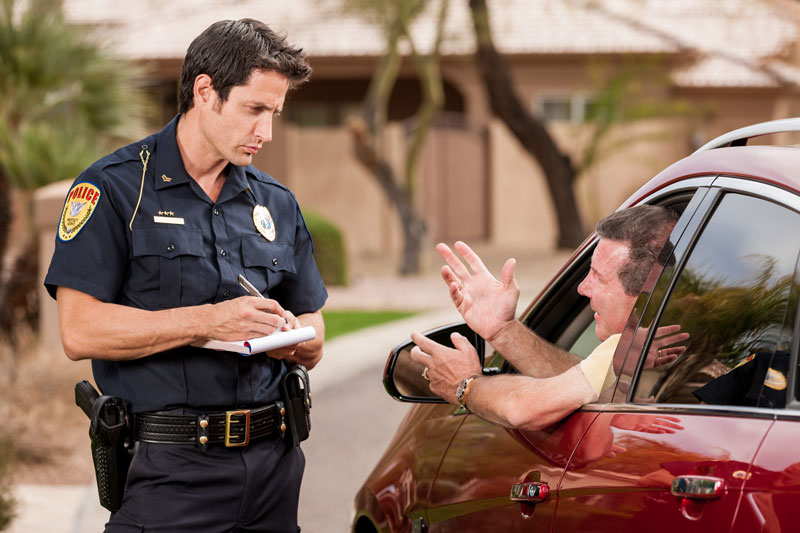
Limits on the Frequency of Court Supervision Dispositions on Illinois Moving Violations
Limits on the Frequency of Court Supervision Dispositions on Illinois Moving Violations
Under the law, a driver is eligible to receive court supervision only two times for moving violations committed within a 12 month period.6
Before agreeing in court to a disposition of court supervision for a moving violation, the prosecutor typically will inquire about the driver's driving record.
Also, traffic court judges frequently ask drivers about their driving records when considering granting court supervision.
The state statue governing the imposition of court supervision even lists different factors a judge is supposed to consider in deciding whether or not to allow court supervision in any given case.7
Specific and different court supervision rules, requirements and limitations apply to drivers under the age or 21 and drivers who hold commercial driver's licenses.
Obtaining an Illinois "Court Purposes" Driver's Abstract
Obtaining an Illinois "Court Purposes" Driver's Abstract
The Office of the Illinois Secretary of State records dispositions of court supervision and conviction on an Illinois driving record, also known as a "driver's abstract."
There are two versions of a driver's abstract available from the Office of the Illinois Secretary of State, the "public" abstract and "court purposes" abstract.
Frequently, I request a court purposes driver's abstract from clients so that we may fully prepare our defense. Abstracts may be obtained from the Office of the Illinois Secretary of State either in-person or online.
A public abstract shows a record of any prior driver's license suspensions, revocations and traffic convictions. It contains information an insurance company or employer could see by purchasing a driving record from the Office of the Illinois Secretary of State.
A court purposes driver's abstract contains the foregoing information, but also contains confidential information, such as dispositions of court supervision that are not disclosed on a public abstract.
A court purposes driver's abstact is available only to a driver or their lawyer, prosecutors and the courts.
Statutory Sources:
1. 705 ILCS 135/1-5. 2. 625 ILCS 5/6-206(a)2. 3. 625 ILCS 5/6-206(a)(36). 4. 730 ILCS 5/5-1-21. 5. 625 ILCS 5/6-204. 6. 730 ILCS 5/5-6-1(k). 7. 730 ILCS 5/5-6-1(c).
What is Speeding?
What is Speeding?
Driving a Vehicle on a Highway
In the State of Illinois
At a Speed Above the Applicable Speed Limit
Unlike most results of court supervision, convictions for multiple moving violations can lead to the suspension of your Illinois driver's license.
A speeding violation is but one of dozens of different kinds of moving violations listed in the Illinois Vehicle Code.
Examples of other common moving violations, in addition to the violation of speeding, include improper lane use, disregarding a red light or stop sign, improper passing, failure to yield the right of way, and failure to reduce speed to avoid an accident.
How can a simple speeding ticket lead to the suspension of your driver's license?
Because a speeding ticket alleges a moving violation, what happens with your speeding ticket can serve as a basis to suspend your driver's license.
In fact, one of the most basic and frequently-imposed Illinois driver's license suspensions affects drivers who've accumulated too many convictions for moving violations in too short a period of time.
The circumstances when a moving-violation-based suspension will be imposed differ, depending on whether you're over or under 21 years of age.
If you're 21 years of age or older, and you're convicted of three moving violations committed within a single 12 month period, the Office of the Illinois Secretary of State will suspend your Illinois driver's license.
If you're under 21, and you're convicted of only two moving violations committed within a single 24 month period, the Office of the Illinois Secretary of State will suspend your Illinois driver's license.

Drivers Age 21 or Over
Drivers 21 years of age and over are subject to suspension if they accumulate three convictions for moving violations charged against them in a single one-year period.
Drivers Under Age 21
Drivers under 21 years of age are subject to suspension if they accumulate two convictions for moving violations charged against them in a single two-year period.
What will happen if you beat your speeding ticket in court?
If you're neither placed on court supervision for nor convicted of your speeding ticket, but instead your speeding ticket simply is dismissed, then no record of your ticket will be reported to the Office of the Illinois Secretary of State and no entry of that ticket ever will appear on your driving record.
I understand the risks of license suspension you might face based on your new speeding ticket.
I take my protection of your driving privileges very seriously. If you choose me as your lawyer in Lake County traffic court, I'll do all I can to protect your driver's license, to keep your record as clean as possible, and to keep you on the road.
If you're facing a potential driver's license suspension due to multiple speeding tickets or other moving violations, or if your driver's license already is suspended because of multiple convictions, I can help.
Why The HoffmanLaw Office?
Why The HoffmanLaw Office?

Analysis.
The HoffmanLaw Office always is focused on the presumption of innocence. Building on this presumption, The HoffmanLaw Office performs a systematic and searching ANALYSIS of the facts alleged in your Lake County speeding ticket case. This intensive analysis may expose weakness in the prosecution's evidence and develops powerful defense arguments and strategies.

Preparation.
The HoffmanLaw Office strives to know completely the facts and law of your case. In traffic court, good results do not often emerge by chance. They come through intense PREPARATION that lays the groundwork for success. When you select The HoffmanLaw Office as your legal advocate, you team yourself with a philosophy of extreme preparation.

Results.
The HoffmanLaw Office views every time it appears in court with you as an opportunity to achieve RESULTS. Whether it is negotiating during a pretrial conference, cross-examining a witness, or delivering a closing argument at trial, The HoffmanLaw Office strives to be your best advocate at all times.
Prior to 2000, under Section 5/11-601(b) of the Illinois Vehicle Code, all speeding tickets in the State of Illinois were petty offenses. Petty offenses are non-jailable and do not carry the same potential penalties as criminal charges. Then, on January 1, 2000, Illinois established a new type of speeding ticket- the misdemeanor speeding ticket.
Under Section 5/11-601.5, suddenly it became a Class A misdemeanor offense to speed 40 miles or more over the speed limit. Unlike petty offenses, which carry no jail time, Class A misdemeanors are criminal in nature and are punishable by up to a $2500 fine and up to 364 days in jail.1
So began Illinois' journey into criminalizing certain speeding violations.
After the Class A misdemeanor law took effect, for the next eleven years there remained only two types of basic speeding tickets in the Illinois Vehicle Code: petty offenses and Class A misdemeanors. During this entire period of time, drivers remained eligible to receive court supervision for either class of offense. A driver could receive court supervision even for driving 40 or more miles per hour over the speed limit.
Then, on January 1, 2011, Illinois added another class of speeding ticket to the books- the Class B misdemeanor speeding ticket. Like Class A misdemeanors, Class B misdemeanors are punishable as crimes. Class B misdemeanor speeding tickets carry fines of up to $1500 and up to 180 days in jail.
Specifically, as enacted on January 1, 2011, Section 5/11-601.5(a) of the Illinois Vehicle Code made it a Class B misdemeanor offense to drive 30 miles an hour or more but less than 40 miles per hour over the speed limit. The Class A misdemeanor offense of speeding 40 or more miles per hour over the speed limit was relisted in Section 5/11-601.5(b).2
On January 1, 2011, not only did Illinois create the Class B misdemeanor speeding ticket, but it also took away the possibility of anyone found guilty of a Class A misdemeanor speeding ticket receiving court supervision for the offense.3 Class A misdemeanor speeding tickets thereby became non-supervisionable. Anyone found guilty of a Class A misdemeanor speeding ticket faced a mandatory conviction as a result.
On January 27, 2011, less than one month later, the legislature redefined Class B misdemeanor speeding tickets as speeding 31 (as opposed to 30) miles per hour or more but less than 40 miles per hour in excess of the speed limit.4
Having removed any possibility of court supervision from Class A misdemeanor speeding offenses, the Illinois legislature then followed suit with Class B misdemeanor speeding tickets.
This particular legislative maneuver occurred on July 1, 2013. From that date onward, anyone found guilty of a Class B misdemeanor speeding ticket no longer was allowed to receive court supervision for the offense.5
As a result, anyone found guilty of either a Class B or Class A misdemeanor speeding ticket could not receive court supervision and faced a mandatory conviction. Also on July 1, 2013, Illinois added a law prohibiting court supervision for anyone charged with speeding in excess of 25 miles per hour over the posted speed limit in an "urban district."6
Having first established misdemeanor-level speeding tickets, and then made them mandatory conviction offenses, Illinois continued to expand the scope of what constituted serious speeding in this State.
On January 1, 2014, Illinois lowered the speeds at which drivers could be charged with Class B and Class A misdemeanor speeding offenses. The range for Class B misdemeanor speeding offenses was lowered from between 31 and 39 miles per hour to between 26 and 34 miles per hour over the speed limit. The range for Class A misdemeanor speeding violations was lowered from 40 to 35 or more miles per hour over the speed limit.7 Now, anyone accused of speeding more than 25 miles per hour over the speed limit may be charged with a misdemeanor offense.
In a major shift, effective January 1, 2016, Illinois altered its policy and made court supervision permissible for many misdemeanor speeding offenses.8 At that time, Illinois banished the outright prohibition on court supervision for all misdemeanor speeding tickets, and changed the law to allow court supervision for such offenses as long as the person charged has not previously been convicted of or placed on court supervision for a misdemeanor speeding offense, and as long as the new offense did not occur in a "urban district."
1. Public Act 91-469, eff. 1-1-00. 2. Public Act 96-1002, eff. 1-1-11. 3. Public Act 96-1002, eff. 1-1-11. 4. Public Act 96-1507, eff. 1-27-11. 5. Public Act 97-831, eff. 7-1-13. 6. Public Act 97-831, eff. 7-1-13. 7. Public Act 98-511, eff. 1-1-14. 8. Public Act 99-212, eff. 1-1-16.
On January 1, 2000, Illinois established a new type of speeding ticket- the misdemeanor speeding ticket . . . So began Illinois' journey into criminalizing certain speeding violations.
~Attorney Matt Hoffman, The HoffmanLaw Office



